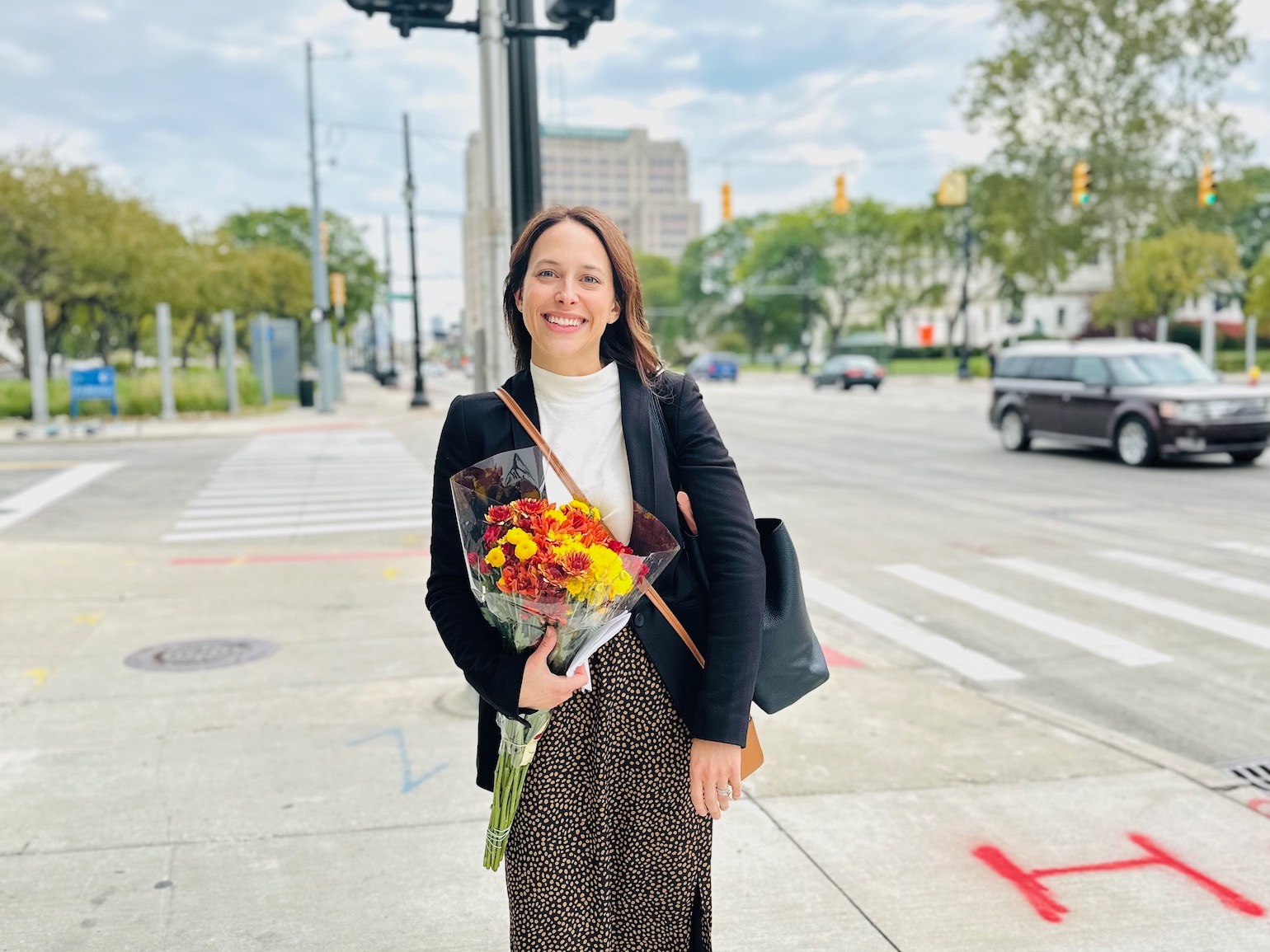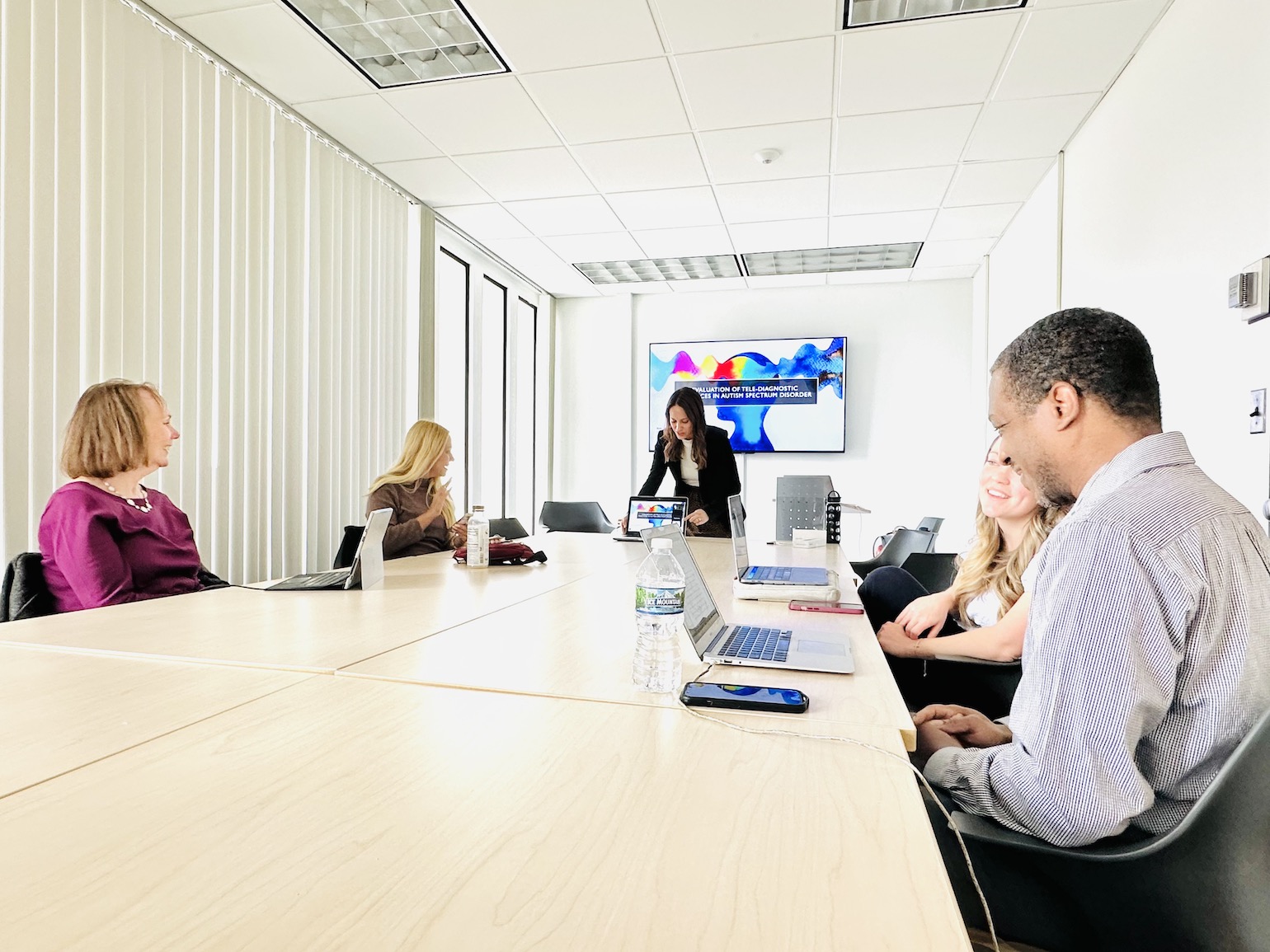Ph.D. graduate carves new path in speech-language pathology

College doesn’t have to be a linear journey. For many, it’s not. That includes Emily LeRose, a recent Ph.D. graduate in communication sciences and disorders who will walk across the commencement stage this December.
LeRose earned her master’s in communication sciences and disorders from Michigan State University and began her clinical career as a speech-language pathologist (SLP) at Henry Ford Health (HFH) in 2011. Five years later, she decided to return to school part-time to earn her doctorate at Wayne State University.
“My goals for extending my graduate studies were to learn how to contribute innovative and meaningful research in my areas of clinical expertise and to become an instructor of future SLPs. Wayne State University was a natural choice because they have a very strong CSD department and have a unique part-time Ph.D. program, which allowed me to pursue my academic goals and continue my clinical career.”
LeRose was able to keep working at HFH while completing post-graduate training in communication sciences and disorders with a focus in developmental science. She and her husband also welcomed two children into their family.
“Wayne State University’s program was so incredibly supportive to a working mother with young children and that is an aspect of this program that I will forever be grateful for.”
A comprehensive study
LeRose’s primary role at HFH is as a member of the multidisciplinary diagnostic team at the Center for Autism and Developmental Disabilities (CADD).
“My research interests and inspiration for my dissertation were drawn from real-life clinical situations in which research can help provide meaningful answers. For instance, during the COVID-19 pandemic, diagnosis of autism spectrum disorder shifted from an in-person evaluation to a tele-health, virtual evaluation, and I wanted to explore the clinical outcomes for patients comparing these two types of evaluation methods for my dissertation study.”
She evaluated the diagnostic outcomes of 1,200 children that were evaluated for autism at CADD.
“Using retrospective data collection, we compared the outcomes from a group of children evaluated for autism utilizing an in-person evaluation method (2018-2020) and a group evaluated using a tele-health protocol initiated during the COVID-19 pandemic (2020-2022).”

Included in the study were the rate at which the autism spectrum disorder (ASD) diagnosis was given, the presence of co-morbid diagnoses, alternate diagnoses as well as patient accessibility to ASD evaluation were analyzed by comparing population demographics such as age, socioeconomic status, geographic area, race, and language preference.
“Results from the study found that autism diagnoses significantly increased by 8.5% on the tele-diagnostic platform, particularly for children under age 8. This rise in rate of diagnosis interestingly mirrors the increase in autism prevalence found in the most recent 2023 CDC study, which suggests that the tele-health evaluation methodology was also able to identify this rise in prevalence.”
Children being evaluated at home, in their most natural environment, may have resulted in a more authentic observation of their overall developmental profile, she says. A greater volume of children were also evaluated with the tele-health method, suggesting additional barriers to care may have been reduced, but LeRose says much additional research is required to solidify this methodology as a new ‘gold standard’ option for ASD assessment.
“I was recently at a national conference where another ASD diagnostician told me that there is a two-year wait at their evaluation center for an autism evaluation. I hope, if anything, that other programs may read this research and think about possible tele-health applications for ASD diagnosis that may reduce barriers for accessing this type of specialized healthcare for children.”
LeRose is excited about the future. Her Ph.D. will allow her the opportunity to continue contributing to more in-depth ASD research at HFH as well as nurture the research collaborations she’s made with Wayne State University faculty in her other interest areas of early language development and stuttering.